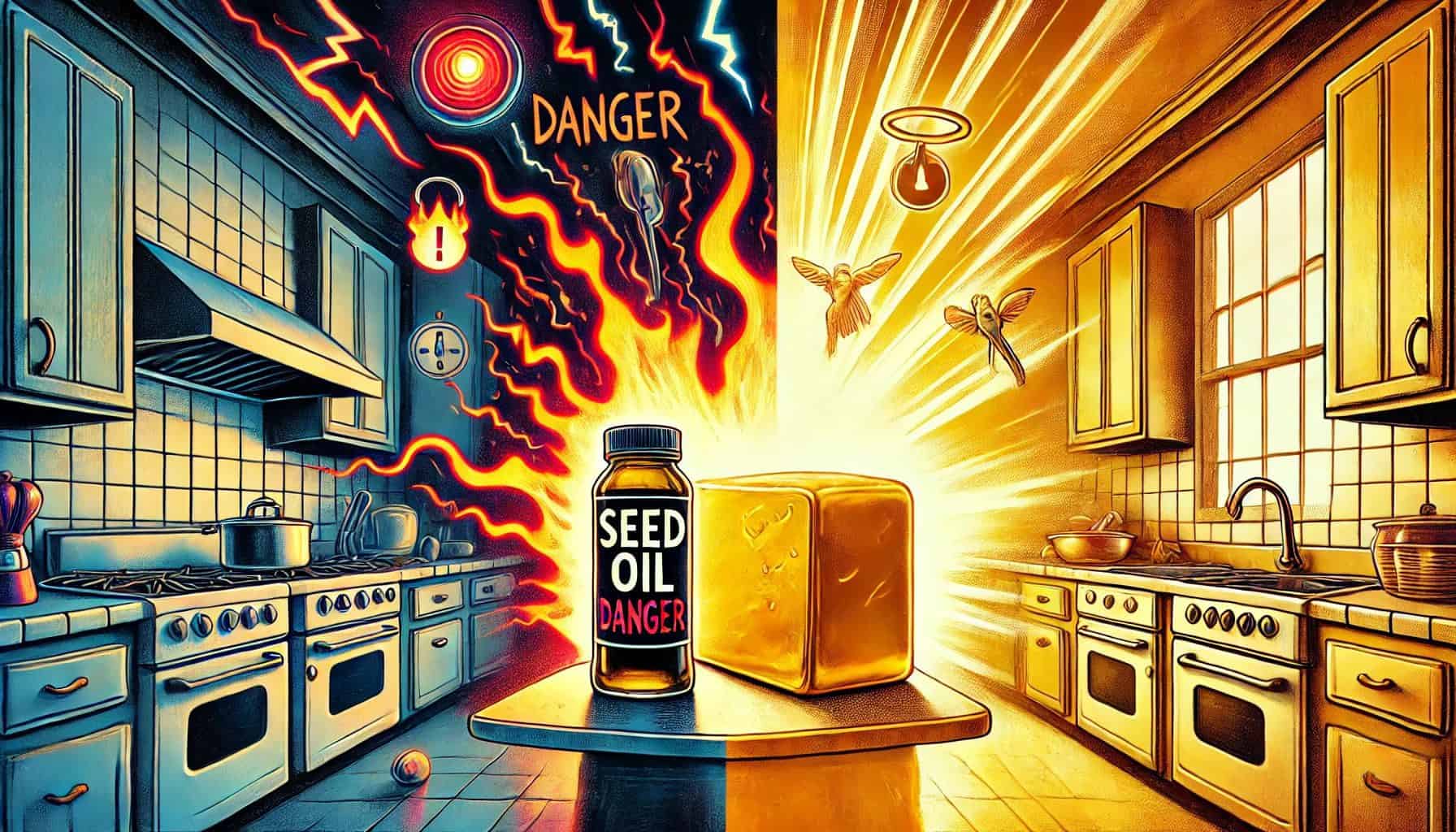Seed Oils Are a Hoax Made Up by the Butter Industry
If you have spent more than five minutes online in health circles, you have probably heard that seed oils are pure evil. Some claim they are responsible for inflammation, obesity, heart disease and the general downfall of civilisation. Others insist the only reason people hate them is because the butter industry wanted a comeback tour. Meanwhile, most people are just trying to figure out what they are supposed to fry an egg in without being judged by the internet. One minute, olive oil is the healthiest thing you can eat. The next, someone on TikTok is telling you it is destroying your mitochondria. Butter is good until it is bad. Coconut oil was the chosen one, but then it was villainised for being mostly saturated fat. At this point, some people are just dry frying everything out of sheer exhaustion.
What Are Seed Oils, and Why Is Everyone Shouting About Them?
Alright, brace yourself… seed oils are, well, vegetable oils. Yep. Just oil squeezed out of things like sunflower seeds, canola, soybeans, corn and safflower. That’s it. Nothing particularly scandalous. They are cheap, mild tasting and somehow end up in everything, like crisps, salad dressings, that so-called healthy oat bar you bought in a moment of optimism but now regret because it tastes like cardboard and sadness.
The Great Seed Oil Panic: Where Did It Come From?
One minute, everyone was happily drizzling sunflower oil on their vegetables. The next, influencers were acting like one sip of canola oil would melt your brain.
Unlock peak brain performance with science-backed biohacks. Join free now & get your guide for just £4.99 (45% off)!

It is worth noting that people have been eating seed oils for over a hundred years. If they were as dangerous as some claim, you would think we would have all collapsed in a greasy heap by now. But that has not happened. What we do have, though, is a modern health crisis, one that started long before anyone even knew what a TikTok nutritionist was.
Here is where things get interesting.
- Seed oils were introduced in the early 20th century, yet obesity and heart disease only skyrocketed decades later
- Many studies linking seed oils to health problems are cherry-picked and lack clear consensus among actual experts
- Most people who cut out seed oils also cut out ultra-processed food, which makes it hard to tell what is really making them feel better
So if seed oils were not the biggest threat to humanity, how did they end up as public enemy number one?
Enter the Butter Industry’s Sneaky Comeback Tour
Butter was once the king of the kitchen. It reigned supreme on toast, in sauces and melted over just about everything. Then the 1950s happened, and suddenly, saturated fat was the villain of the decade. Vegetable oils took over, and butter was pushed to the sidelines like an ageing pop star watching their former glory fade.
For decades, margarine stole the spotlight, strutting around as the healthier option while butter lurked in the background, waiting for its comeback. And come back it did. But how do you convince people to embrace something that was once demonised? Simple. You make them afraid of something else.
Now, butter is back. But how do you bring back a product that was once demonised? Simple. You give people something else to fear.
- The same influencers who scream about seed oils just so happen to promote expensive grass-fed butter, beef tallow and coconut oil
- The same people who rage against inflammation conveniently ignore that excessive saturated fat is not exactly great either
- Many of the loudest voices against seed oils have links to brands selling premium animal fats
Is butter bad? No. Are seed oils pure poison? Also no. But nothing sells quite like a food panic.
Are Seed Oils Actually Bad for You?
Let’s be clear. No one is suggesting you should down a bottle of vegetable oil like it is a health tonic. But are seed oils the reason for every health issue under the sun? The science says no.
What actually matters is this.
- Are you eating real food, or is your diet mostly processed junk?
- Are you balancing your fats or just switching from one extreme to another?
- Are you looking at the bigger picture of your health, or just obsessing over one ingredient?
The truth is, modern diets are a mess. And it is not just because of seed oils.
But What About Seed Oils and Neurodivergence?
This is where things get interesting. Some researchers have suggested that diets high in omega-6s and low in omega-3s might contribute to inflammation that affects brain function. Some studies have looked at the link between omega-6-heavy diets and worsened ADHD and autism symptoms, though the research is still evolving.
It is well known that diet and brain function are closely connected, and many neurodivergent people react differently to certain foods. While no one is claiming that seed oils cause ADHD, it is worth considering how fat balance affects cognitive health.
The Bottom Line
Seed oils are not the root of all evil, but they are not exactly a health food either. If your meals mostly come from whole foods and good fat sources, there is no need to panic about the occasional bit of sunflower oil.
This is not about butter versus seed oils. It is about stopping the cycle of fear-mongering around food and making choices based on facts instead of trends.
Join Our Community
Want to cut through the nutrition noise and get real, balanced insights on food, health, and biohacking? Join our community, where we talk facts, not fear-mongering.
Disclaimer. This post is for informational purposes only and does not constitute medical advice. Some links may be affiliate links, which help support this site at no extra cost to you.







